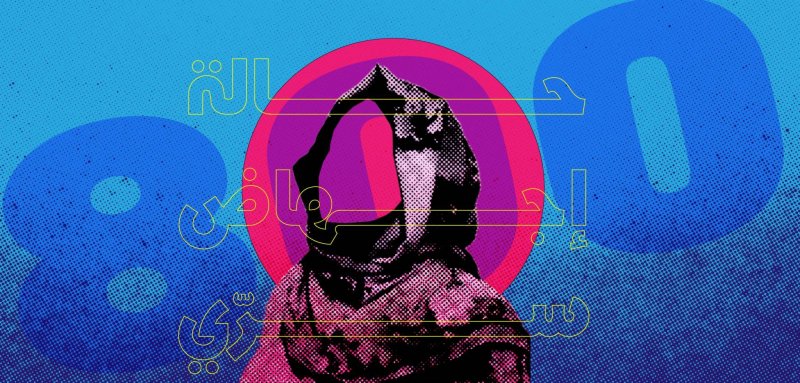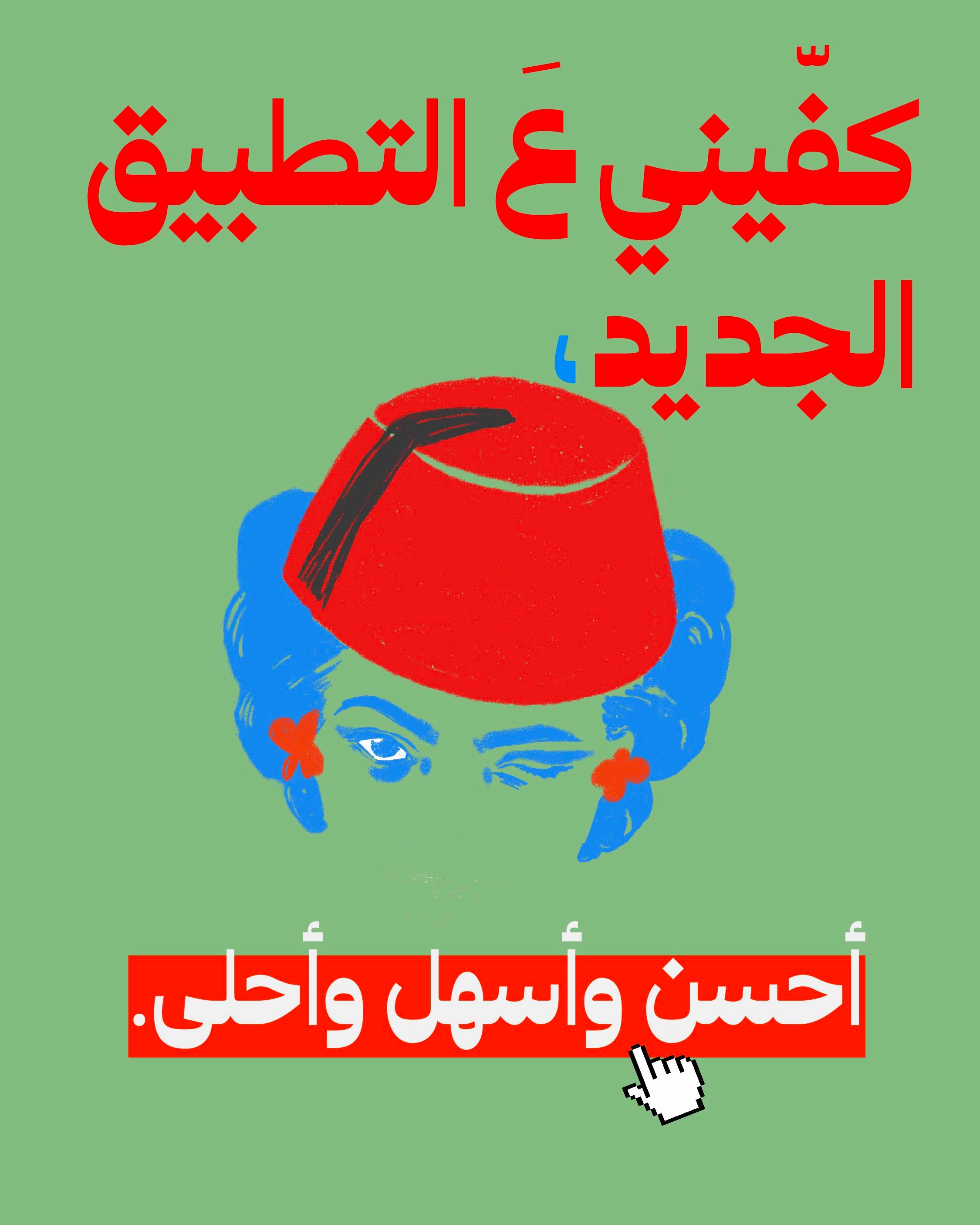Women who get an abortion do not do it on a whim or due to some desire to kill an unborn child. It is a difficult and painful decision to make. These sentiments were voiced by Ms. Hafida, who was forced to resort to this procedure when her partner abandoned her and backed out of the idea of marrying her. She found she had no alternative to protect her image in society because she did not want to be a single mother, and wrong a child by bringing him into the world while his father does not want him.
“Abortion was the last resort I had, because if my family knew I was pregnant, they would have killed me,” Hafida discloses painfully to Raseef22, after we met her at an organization supporting women. “That is why I gathered 4,000 dirhams, and went to a clinic that a friend told me about, and I got rid of my pregnancy that would have brought me shame, even though I longed to be a mother. I did not think about the possibility of being killed as much as what my family would say about me, and what society would say. What I actually wanted was the last thing I could even think about in a society that has no mercy.”
Inside the organization, Raseef22 also met Maha, a young woman who was raped by one of her relatives in the ‘badia’ (the semi-arid regions of the country). She was accompanied by her mother, who came to beg the organization to find a solution to her daughter’s problem, since she cannot carry on with this pregnancy that has brought shame to her and her family. The organization adopted their case, and pushed the young woman’s family to file a lawsuit against the rapist, who, in the worst case scenario, would be imprisoned for a few years, without the slightest regard for the psychological state of that young woman who would become a mother by force.
Abortion was the last resort I had, because if my family knew I was pregnant, they would have killed me. I gathered 4,000 dirhams, and went to a clinic that a friend told me about
With the US Supreme Court’s decision to repeal the historic ruling protecting women’s constitutional right to abortion, in what is known as the “Roe v. Wade” case, which took place in 1973 and ruled it a constitutional right that must be implemented in all states, there are growing fears from a number of individuals and groups active in protecting the rights of Moroccan women, as was confirmed to us by more than one feminist activist and social worker.
The US decision is a major setback and a great regression of the gains that women’s associations and organizations defending women’s right to their own bodies and health have made, not just in the United States but across the world. This prompted many bodies and groups in various countries, including Morocco, to issue statements condemning this “arbitrary” decision, which pushes back the status of women to ancient times, and places legal guardianship over women’s bodies, viewing them as mere “vessels for procreation”.
Legitimate fears
In this context, the Federal League for Women’s Rights in Morocco (FLDDF) issued a statement condemning this decision, considering it “a clear threat to the human rights of women, a serious regression from the gains achieved by the women’s rights movement through a history of struggle, and a human rights setback.”
The FLDDF, one of the largest Moroccan women’s organizations working to eliminate all forms of discrimination against women, has stood in solidarity with American women, and called on the US Supreme Court to retract the ruling and protect the human rights of women, because of its serious consequences for women’s lives and health.
But its main battle is Morocco. Thus, it demanded of the Moroccan government “to decriminalize all cases of medical abortion that women practice of their own free will, in a manner that guarantees their dignity and their right to make their own decisions and choices, along with their level of readiness for pregnancy and motherhood, and in keeping with Morocco’s international obligations and embodying the constitutionally established principles in the country.”
Compound legal violence
Jurist and rights activist Samira Mohia, head of the Federal League for Women’s Rights in Morocco, reiterated in a statement to Raseef22 that the US Supreme Court’s decision to overturn the historic ruling protecting women’s right to abortion is “a major threat to the basic rights of women, and a serious reversal of the human rights gains made by international women’s movements through a long history of struggle.”
The spokeswoman clarified that this decision will certainly have a negative impact on other countries, as they may retract their decisions as well, noting that there is a significant regression at the international level regarding human rights, especially the rights of women, as equality is no longer a priority for many countries. She also stated that this US decision has taken us centuries backwards, and will have an impact on the lives of women and girls in their right to own their bodies. It will also cause many health and psychological problems, and will encourage clandestine abortion (secret and unsafe abortions) and the risks it poses to women’s lives.
Samira Mohia explained that "Roe v Wade" will have a negative impact in other countries, as they can also retract their decisions, noting that there's a significant regression internationally on g human rights, especially the rights of women in Morocco
Mohia affirmed that there is no way to avoid addressing the issue of medical abortion and including it within the framework of fulfilling the human rights of women along with combating all forms of violence and discrimination as well as the injustice inflicted upon them, including violence, coercion, and forcing certain legal requirements at times, in a way that violates their dignity, rights, decision, choice, and their readiness for pregnancy and motherhood or lack thereof.
Regarding Morocco, the head of the organization stated that the criminalization of abortion through the current criminal law constitutes “a cruel, compound legal violence that harms the dignity of women, establishes legal guardianship over women’s bodies, and deprives women of the right to decide the fate of their bodies and their lives, as long as they keep being seen as a mere vessel for procreation, and are denied of their right to psychological and physical health, alongside their choice and readiness for pregnancy, motherhood, and raising an unwanted child that will not have any legal protection, or have the right to identity, education, lineage, inheritance, care, upbringing, and human dignity, and that will also not have the right to work and health.”
800 cases of clandestine abortions
She said that despite this legal arsenal that criminalizes abortion in Morocco, there are more than 800 cases of clandestine abortions every day, which she sees is a violation of women’s dignity, and a stain in the records of Moroccan and international legal legislation, since a country like America that had previously approved it, is now reversing the ruling. It is as if the state wants to solve the emerging problem of rising ageing rates by banning abortion, which in turn will cause the rates of clandestine abortion to rise, and endanger the lives of women, since because of this type of abortion, women lose their lives. In Morocco, for example, a woman dies every day from clandestine abortion, according to the head of FLDDF, despite the fact that these operations are performed by health professionals, including doctors, nurses, and professional birth attendants, not to mention the traditional abortions that are done via folk practices — through eating a number of herbs, ingesting poison, or sorcery — which women living in fragile situations end up resorting to.
As for Dr. Chafik Chraibi, president of the Moroccan Organization against Clandestine Abortion (AMLAC), which defends women’s right to legal and safe medical abortion, he sees a great contradiction in the US Supreme Court’s abolition of women’s right to abortion, since this was done by a country that legalizes execution and the possession of firearms. He views the decision as a human rights setback that will have repercussions on the rest of the countries around the world, including Morocco, which still has reservations on this issue, as its draft law was withdrawn to reconsider the cases where abortion should be allowed — which has previously been determined in only four cases in which the physical health of the woman is threatened, without any regard for her mental, psychological, and social health, as abortion is permitted only “when pregnancy poses a threat to the mother’s life or health, and in cases of pregnancies resulting from rape or incest, serious congenital anomalies, and difficult diseases that may affect the fetus.”
Dr. Chraibi, who has previously been subjected to a great deal of harassment due to his statements in the international press on this subject — which is still considered taboo in Morocco — says that the cases where abortion is permitted in Morocco constitute only 10 percent of the total cases in which abortion is applied, while 90 percent of it remains absent, with the understanding that abortion must be allowed in the event of a danger to the woman’s physical, mental, psychological, and social health, which is the overall definition of health stipulated by the World Health Organization.
Chraibi stresses that Morocco has been long overdue in producing a clear and comprehensive law regarding abortion, which is criminalized by Moroccan law, punishing the abortionist, the woman, and the mediator with a penalty ranging from 6 months to 5 years in prison. It is only allowed in a single article — Article 453 of the Penal Code — which allows the procedure to be done if the mother’s health is in danger. However, clandestine abortion in Morocco is on the rise, reports Chraibi, as figures based on a scientific study from the Moroccan Organization against Clandestine Abortion (AMLAC), indicate that clandestine abortions in Morocco range between 600 and 800 cases per day, despite the increasing legal strictures and many doctors no longer agreeing to perform it, after some of them were prosecuted. In addition, the World Health Organization revealed in its latest report that 13 percent of the overall deaths of women are from clandestine abortion.
Alarming numbers
It should be noted that in the absence of official Moroccan figures, the American website “Fact Slides” has previously ranked Morocco the first in the Arab world in abortion and the eighth in the world, despite the fact that it is legally criminalized, while the Moroccan Association for Planned Parenthood (AMPF) had revealed that 80,000 abortions take place every year in Morocco, whereas the Moroccan Organization against Clandestine Abortion (AMLAC) has, through a scientific study, determined the number of cases between 600 and 800 clandestine abortions per day.
For this reason, and because women’s reproductive rights are basic and fundamental rights, and the threat of abortion is a form of violence practiced against women, many Moroccan human rights activists have launched the “Alternative Movement for Individual Freedoms” (known simply as “MALI”) a number of years ago. Among the issues it raises is the issue of body freedom. They have also demonstrated against the criminalization of abortion and launched a fundraising campaign to help Moroccan women who wish to terminate their pregnancies by having access to a “safe abortion”.
رصيف22 منظمة غير ربحية. الأموال التي نجمعها من ناس رصيف، والتمويل المؤسسي، يذهبان مباشرةً إلى دعم عملنا الصحافي. نحن لا نحصل على تمويل من الشركات الكبرى، أو تمويل سياسي، ولا ننشر محتوى مدفوعاً.
لدعم صحافتنا المعنية بالشأن العام أولاً، ولتبقى صفحاتنا متاحةً لكل القرّاء، انقر هنا.


